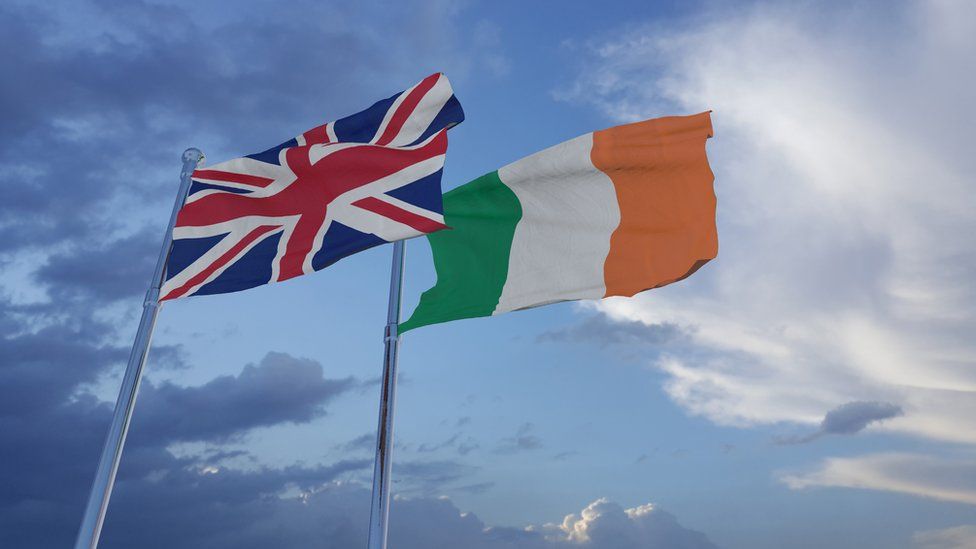
The report focused on the shortfall between what is raised in taxes in Northern Ireland and the amount spent on public services
By John Campbell
BBC News NI economics and business editor
The initial cost of a united Ireland would be at least €8bn (£6.86bn) a year rising to potentially €20bn (£17.15bn) a year, a new study has estimated.
The analysis has been published by the Institute of International and European Affairs (IIEA), a Dublin think tank.
It focuses on the subvention – the shortfall between what is raised in taxes in Northern Ireland and the amount spent on public services.
It looks at how the subvention would be affected under different scenarios.
Image source, OC Photography
Prof John Fitzgerald said unification would result in “huge financial pressure”
One of the authors, Prof John Fitzgerald, said that the initial cost of absorbing Northern Ireland would “put huge financial pressure” on the people of the state “resulting in an immediate, major reduction in their living standards”.
Along with his co-author, Prof Edgar Morgenroth, he argued that the cost of unification could be substantially reduced if Northern Ireland made major changes in its economy in order to raise its productivity.
Prof Morgenroth said some of the costs would also eventually be offset by the benefits of integration into the wider EU economy but this would take “some considerable time”.
They look at the subvention for 2019 as the more recent data, for 2020 and 2021, is distorted by pandemic-related spending in Northern Ireland.
They adjust the 2019 figures to reflect some of the differences a united Ireland would make, for example less spending on defence, more on contributions to the EU and increased corporation tax revenues.
That produces a subvention estimate of just under €11bn (£9.4bn) meaning the Irish state would need to find that money to provide public services to the state’s new population in what had been Northern Ireland.
Image source, IIEA
Prof Morgenroth said some of the costs would eventually be offset by the benefits of EU membership
The authors estimate that if social security benefits and public sector wages in Northern Ireland were immediately raised to match levels in Ireland the subvention would jump to more than €20bn, equivalent to 10% of national income.
The authors said this is “a huge sum” as total government expenditure in Ireland currently amounts to about 40% of national income.
“To deal with the resulting deficit, which under the most favourable circumstances would persist for many years after unification, there would have to be a dramatic increase in taxation and/or a major reduction in expenditure,” they add.
The authors consider two additional scenarios which assume that the UK would either write off Northern Ireland’s share of the UK’s national debt or continue to pay UK state pensions to people who had made national insurance contributions.
In those scenarios, the initial cost falls to between €8bn-9bn per year, although those estimates do not include the uprating of benefits and pay.
None of the estimates consider the potential savings from reducing public sector employment in NI or the longer term impacts if Northern Ireland’s economic performance was to converge on Ireland’s.
Image source, omersukrugoksu
A previous study from 2021 suggested the cost of a united Ireland could be about €3bn
A 2021 paper by the political scientist Prof John Doyle suggested that the subvention is much smaller and would represent a deficit of less than €3bn (£2.57bn) for a unified state.
He said that was “within a range that a future state could cope with on a transitional basis”.
One of his major assumptions was that it would be “impossible that the level of subvention impacting a united Ireland would include both pensions and debt”.
He has recently added to that analysis, emphasising the potentially positive longer run economic impacts of unification.
He concluded: “It is hard to think of compelling arguments as to why the same policy mix in the two parts of the island, post-unity, would see Northern Ireland’s economy continue to perform poorly by comparison with the south.”







